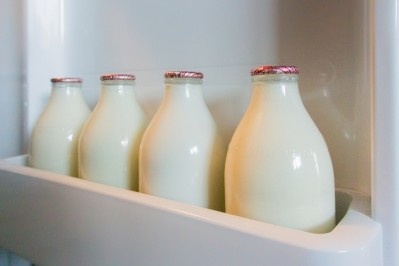European food sector mounts defence of the single market

The food industry is Europe’s largest manufacturing sector, with 289,000 companies generating annual revenues of more than €1trn and employing 4.2m people.
According to a report from sector body FoodDrinkEurope, value-added food sales are on a growth course, rising by 3.4% between 2013 and 2014. The sector hopes to grow value-added sales by 2.5-3.5% per annum between now and 2025.
However, the report – out today – carries a stark warning that the food sector’s outlook is under threat.
Importance of single market
The single market accounts for 90% of European food sector sales. Recent events, such as Brexit, have placed stress on the functioning of the single market, FoodDrinkEurope notes.
“A well-functioning single market is becoming the industry’s most important priority. Brexit is adding one more level of complexity and uncertainty for businesses on both sides of the channel,” the organisation warned.
Once outside the bloc, the UK will be the EU’s largest food and drink trading partner, FoodDrinkEurope noted. The organisation called on the European Commission to negotiate a transitional deal and future trading relationship that will guarantee the seamless trade of food and drink products and ingredients between the continent and the UK. FoodDrinkEurope urged negotiators to prioritise “business needs” over “political requirements” in upcoming trade talks.
Beyond Brexit
Brexit is not the only risk factor, FoodDrinkEurope continued. “Renationalisation, different interpretations and “gold-plating” of EU laws increasingly lead to barriers for food and drink companies within the single market.”
Throughout 2017, FoodDrinkEurope was a staunch opponent of legislation introduced at a national level such as country of origin labelling requirements and in December the group registered an official complaint about Italy’s country of origin requirements, the introduction of which it argued did not follow procedural requirements.
Country of origin labelling is a controversial subject in Europe.
EU regulation on food information to consumers allows Member States to introduce additional mandatory labelling requirements for specific food categories - including indicating a products origin - if justified on the grounds of public health or consumer protection.
While some countries, including Italy and France, have introduced COOL regulations, other Member States are dissatisfied with the proliferation of national requirements. Last year, Belgium - with the support of Germany, the Czech Republic, the Netherlands and Luxembourg - called for the EC to conduct an impact assessment on mandatory origin labelling.
In response, the Commission asked Member States that have implemented such measures to provide feedback at the end of their experiment, which can run to 2019.
“In the context of an ambitious and comprehensive Single Market strategy, the European Commission should step up its role to make sure that EU legislation is correctly enforced and that national legislation does not fragment the Single Market in areas where food legislation is harmonised,” FoodDrinkEurope urged.


















